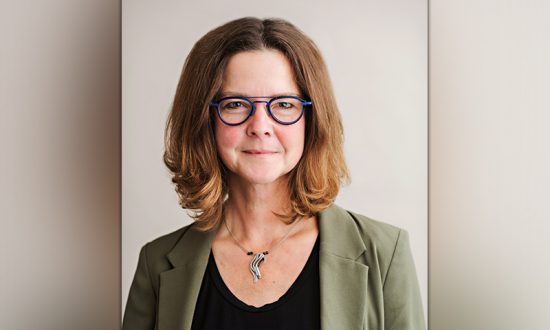Dr. Heidi Northwood is the Vice President: Global Strategy at Wilfrid Laurier University. She is a member of the Executive Leadership Team and leads the institution’s internationalization strategy development and coordination across all offices and functions. Northwood received her bachelor and master degrees in philosophy from Western University and her PhD in philosophy from the University of Alberta in 1997. After a rewarding career at Nazareth College in Rochester, NY, she joined Wilfrid Laurier University in 2014 as Dean of the Faculty of Liberal Arts. As Dean, Northwood led the development of new programs, including the BA/LLB partnership with the University of Sussex (UK) and the Bachelor of Design in User Experience Design (UXD), and prioritized undergraduate research and experiential learning on campus. Northwood continues to research Ancient Greek philosophy and is teaching Design Ethics in the UXD program in 2022.
“There are plenty of ways to prepare for an inspiring profession before leaving university and to get your dream job.”
University is a place to learn, grow, make new friends and launch an exciting future. Yet it also means juggling studies with preparing for a career. How can one make their resumé shine, despite being busy at school?
It’s really a no-brainer!
There are ways of building your resumé even before graduating that will put you on top. The trick is to find opportunities beyond the classroom that are the right fit and help bring your learning to life. Experiential learning gives you a chance to develop career-ready skills, gain leadership experience, and have an impact on the community and the world.
Here is a snapshot of what students can do to prepare for an inspiring future:
Become a co-op student
Want to learn world-ready skills, earn a salary and strengthen the degree – all at the same time? Co-operative education is an education model that alternates classes with paid work terms in fields relevant to a student’s academic and personal goals. Each year, thousands of co-op students find short-term jobs and earn credits while they learn on the job. The students make good money; for example, a computer science co-op student can make between $650 to $700 per week, or more, in Canadian funds. That financial support can go a long way towards paying for an education.
What’s more, international students are given extra support so they can successfully find co-op positions, like a co-op prep course that teaches resumé writing and interview skills. The types of co-op jobs that are available can vary across different companies and organizations so this support is valuable in preparing students for a variety of opportunities. By the time the students graduate, they can write a resumé and cover letter with expertise and confidence.
There’s even an opportunity to be paired with a mentor – a senior international student who can offer advice. Once new students land their first co-op job, they attend a pre-work term workshop that helps them adjust to the organization’s culture.
Participating in co-op can also help students determine if their program will lead them to the career they want or if they should consider customizing their degree with a minor, concentration or specialization, or even switch to a different program of study.
Learn by doing
Many courses include time working with people and organizations in the community. From working on a marketing promotion with a student group to helping at a museum doing archival work, students get hands-on, real-world experience while earning a credit. With Community Service Learning (CSL), students make plenty of career contacts as they improve lives too.
Try an international exchange
Just because a student has chosen a Canadian university doesn’t mean they can’t spread the wings further. As an international student, one already has experience with navigating new cultures. Students can try study-abroad opportunities with exchange partner institutions around the world and present themselves as global citizens to potential employers.
Double your credentials
Students can look for double-degree programs and pathway programs at universities that allow them to double their credentials. Options can include completing two university degrees at the same time, often in five years, or completing a college diploma that focuses on practical skills while earning a university degree that focuses on knowledge and theory.
Completing a university degree is an important step in becoming career-ready, but it’s also important to take advantage of other opportunities for learning outside of the classroom. All of a student’s experiences during university contribute to the skills and knowledge that make them a valuable, sought-after employee in a variety of industries.




